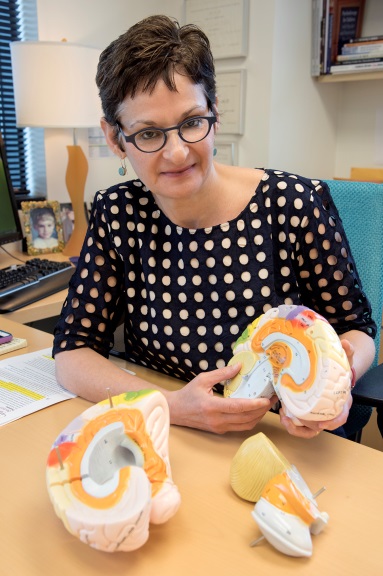Twelfth International Summer School on Mind, Brain and Education
2017 September 1–7
Neuroscience of poverty
Director of the School: Antonio M. Battro
Director of the Course: Sebastián J. Lipina
Codirectors of the Course: Eric Pakulak, María Soledad Segretin
Management Assistance of the Course: Matías Lopez-Rosenfeld
Program Officer of the School: Lula Majdalani
Washington University, USA
Dr. Luby is the Samuel and Mae S. Ludwig Professor of Psychiatry (Child) at Washington University School of Medicine in St. Louis. She is the founder and director of the Washington University School of Medicine Early Emotional Development Program (EEDP). Dr. Luby’s research focuses on preschool mood disorders, particularly depression, its clinical characteristics, biological markers, and associated alterations in brain and emotional development in young children with depressive syndromes. In addition treatment development that focuses on early psychotherapeutic intervention, sensitive periods and neural markers of change is also a key area of focus. Dr. Luby’s contributions include establishing the criteria for identification, validation and early intervention in depressive syndromes in the preschool age group as well as studies in humans showing the effect of parental nurturance and early experiences of poverty on brain development. Among her honors are the NARSAD Gerald Klearman award for outstanding research and the AACAP Irving Philips award for prevention. Dr. Luby has published extensively in numerous general and child psychiatric journals and serves on a number of editorial boards.

Early childhood adversity, brain development and risk for poor emotional and physical health outcomes
There has been increasing evidence for the powerful role of psychosocial adversity on brain development and behavior. While most studies to date report a link between early adversity measured as poverty and later volumes of the amygdala and hippocampus, there is some emerging evidence to suggest a relationship between adversity, using the original Felitti definition of Adverse Childhood Experiences (ACES) and aspects of pre-frontal function and structure. This talk with present findings from a prospective longitudinal neuroimaging study in which ACES was measured during early childhood (EC-ACES) and brain imaging was done at school age. A link between EC-ACES the volume of pre-frontal sub-region and later emotion functioning in the risk trajectory to depression and poor global health outcomes were found in adolescence. Study findings suggest that early adversity impacts brain regions key to emotion functioning and adaptive regulation and that these deficits contribute to risk for later depression and poor health behaviors and outcomes. These new findings will be discussed in the context of the observational epidemiological literature on the link between ACES and poor physical and mental health. Implications for preventive interventions will be considered.
Literature to share
• Luby, J.L. (2015). Poverty´s most insidious damage: The developing brain. JAMA Pediatrics, 169, 810-811. doi:10.1001/jamapediatrics.2015.1682
• Luby, J. Belden, A., Botteron, K., Marrus, N., Harms, M.P., Babb, C., Nishino, T., & Barch, D. (2013). The effects of poverty on childhood brain development: The mediating effect of caregiving and stressful life events. JAMA Pediatrics, 167, 1135-1142. doi: 10.1001/jamapediatrics.2013.3139
• Luby, J.L., Belden, A., Harms, M.P., Tillman, R., & Barch, D.M. (2016). Preschool is a sensitive period for the influence of maternal support on the trajectory of hippocampal development. Proceedings of the National Academy of Sciences USA, 113, 5742-5747. doi:10.1073/pnas.1601443113
• Barch, D., Pagliaccio, D., Belden, A., Harms, M.P., Gaffrey, M., Sylvester, C.M., Tillman, R., & Luby, J.L. (2016). Effect of hippocampal and amygdala connectivity on the relationship between preschool poverty and school-age depression. American Journal of Psychiatry, 173, 625-634. doi:10.1176/appi.ajp.2015.15081014















